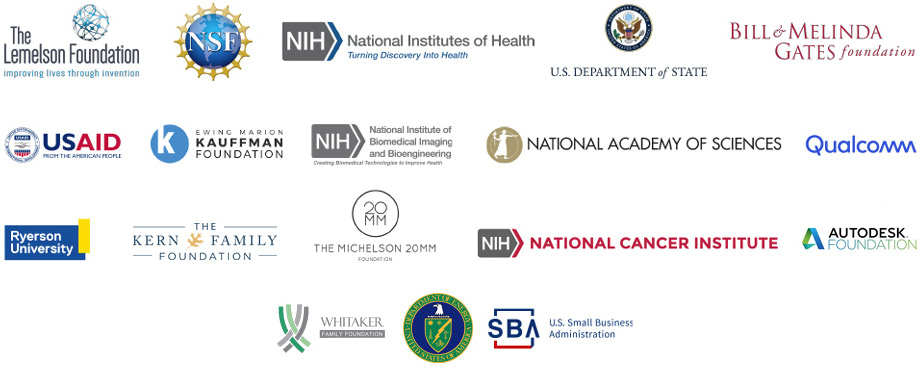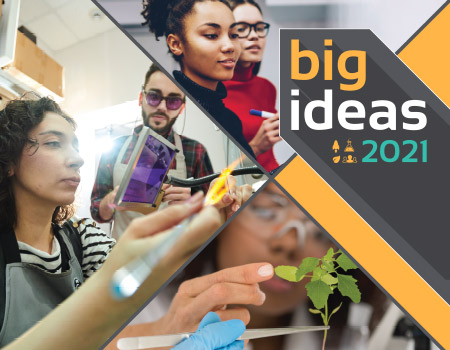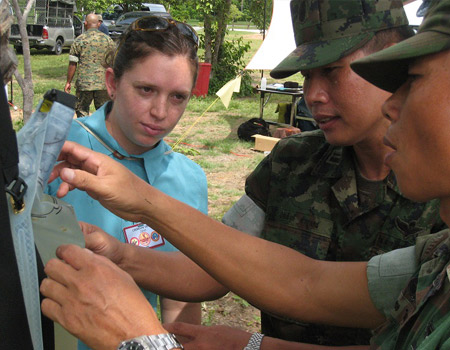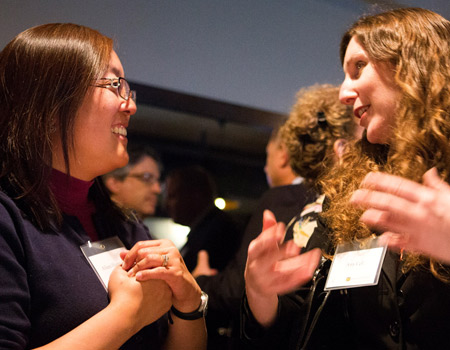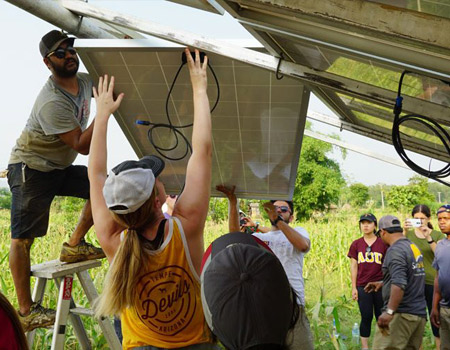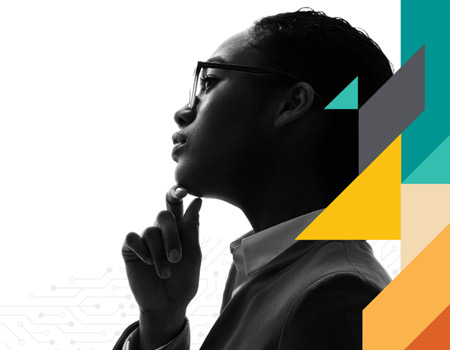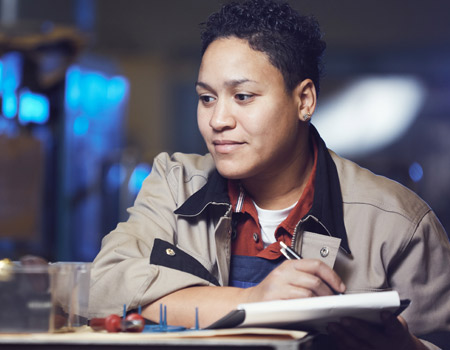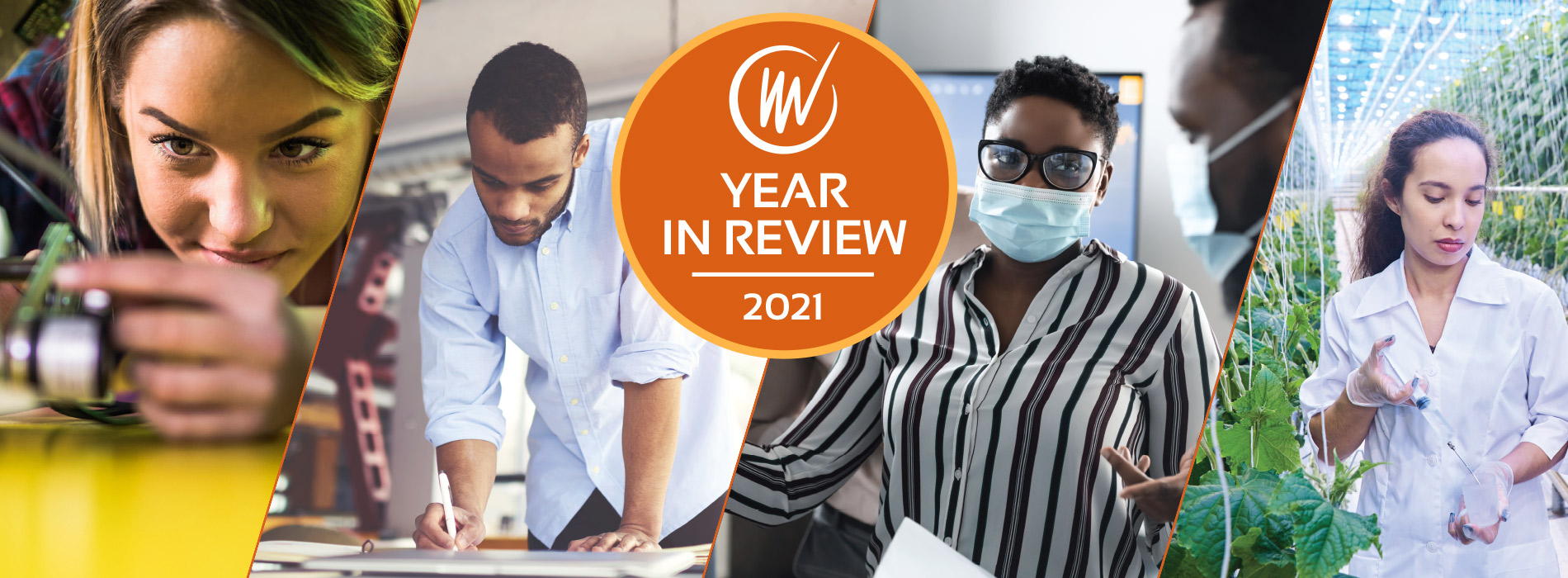
message from Phil Weilerstein, VentureWell President and CEO
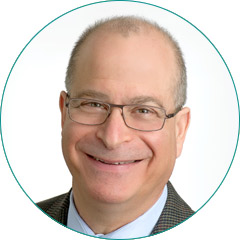
Accelerating innovation is what we do. For over 25 years we’ve supported early-stage innovators as they develop and launch pioneering ideas with scalable impact. Our work is based on the belief that scientific innovation can help solve the world’s greatest problems and chart a path to a better world for all. In response to an unprecedented convergence of global challenges over the past year, VentureWell has stepped into new challenges, evolved, and grown.
Our work with federal partners expanded in 2021. In April, we kicked off the milestone 100th cohort of the National Science Foundation I-Corps national training program. This cohort included teams such as ePatch, which is developing an innovative delivery system for gene-based medicines, and OptimoEnergy, which is creating an AI-power management system that helps businesses and residential communities reduce their electricity bills.
The ongoing COVID-19 pandemic upended daily life for billions of people across the world and caused immeasurable grief and devastation. Dramatic action was needed and in the spring of 2020, the National Institutes of Health (NIH) launched the Rapid Acceleration of Diagnostics (RADx) initiative with $1.5B in federal stimulus funding to speed the development, commercialization, and implementation of technologies for SARS-CoV-2 (the virus that causes COVID-19) testing. VentureWell provided infrastructure support to the energized community of RADx innovators to identify, develop, and launch crucial COVID-19 testing solutions.
The scale and approach was unprecedented—thousands of scientific innovators, service providers, and technical experts came together to develop and scale direly needed diagnostic innovations, including Mammoth Biosciences, a company that utilized CRISPR technology to accelerate COVID-19 testing, and MatMaCorp, a company that developed an all-in-one testing device that provides higher volume test throughput and doesn’t require additional lab support that is often lacking in rural areas. This urgent work continues and has evolved to keep up with the emergence of new variants and the need to ensure that testing reaches all communities that need it.
Science and technology innovation has the potential to improve the lives of the world’s most vulnerable people, protect and heal the planet, and bridge the gaps of entrenched systemic failures. We shared our intentions to place equity and inclusion at the center of our work and continued our journey to build more equitable and inclusive pathways in science and technology innovation and entrepreneurship. In particular, we investigated the inequitable systems across the I&E ecosystem that block the progress of individuals from underrepresented, underestimated, and underresourced groups, and examined how these challenges were compounded by the existential threats of climate change, a global pandemic, and a national reckoning in the face of centuries of systemic racism. To help build and share knowledge on advancing equity, we hosted a series of online community conversations that brought together about 60 participants for nuanced discussions on how faculty and entrepreneurship center directors can bolster their equity efforts and improve outcomes. We also reflected deeply on our progress and challenges so far in our publication, Charting a Path Forward: Reflections on Initial Steps Toward Advancing Equity in Innovation & Entrepreneurship, which articulates how we are working to define, address, and assess the systemic gaps in equity and inclusion across our work.
In the last year, we’ve initiated a partnership with Black Tech Ventures (BTV), an organization that works to empower African American tech innovators and entrepreneurs, and to foster a culture of entrepreneurship at historically Black colleges and universities (HBCUs), to promote entrepreneurial leadership among African American tech professionals and accelerate venture formation at HBCUs. We also partnered with the Verizon and Clinton Global Initiative University to produce the CGI U Social Innovation Challenge, which awarded over $350K and entrepreneurship training to thirteen teams from 23 institutions of higher education that are creating inventions that address pressing societal needs in the key areas of immersive education technology, climate justice, and health equity.
As climate change continues to accelerate, literacy in the principles of environmental responsibility and the tools of green design have become even more critical to securing a sustainable future. We continued to build upon our work on the Engineering for One Planet Framework (EOP) with The Lemelson Foundation and hundreds of stakeholders in academia, industry, policy, and non-profit organizations. EOP stakeholders met virtually over the summer to review initial results of current pilot grant programs underway at five universities, and to launch the Engineering for One Planet Network, an impact-driven collaboration that will continue to meet through 2022 to develop shared strategies for transforming engineering education.
Last year, it seemed that the way we worked changed completely. For many, working at home became the norm, students across the globe learned digitally, and workshops and conferences transitioned online, including our annual conference, OPEN. The ethos of OPEN is to bring together educators, practitioners, and funders across the science & technology innovation and entrepreneurship education sphere to learn emerging best practices and forge new relationships in the field. Building off the success of our rapid pivot online in 2020, we planned OPEN 2021 as an immersive online experience that resonated with our community—and drew close to 500 attendees across the ecosystem. One participant noted,
“OPEN 2021 addressed important topics that are critical to understanding the world of university-based entrepreneurship and innovation, but came at these topics from new and interesting angles with sensitivity and compassion for the year we have all powered through.”
We are pleased to have accomplished so much in the past year despite, or perhaps because of, the rising urgency of the global challenges that threaten our safety and health. With this urgency comes an opportunity, which we have embraced, to accelerate innovation in ways that invite and support every innovator’s contributions. In this publication, we share our recent work supporting innovators and building ecosystems that foster positive change through science and technology innovation. The past year has illustrated a key lesson: our problems are interconnected—and our solutions must be as well.
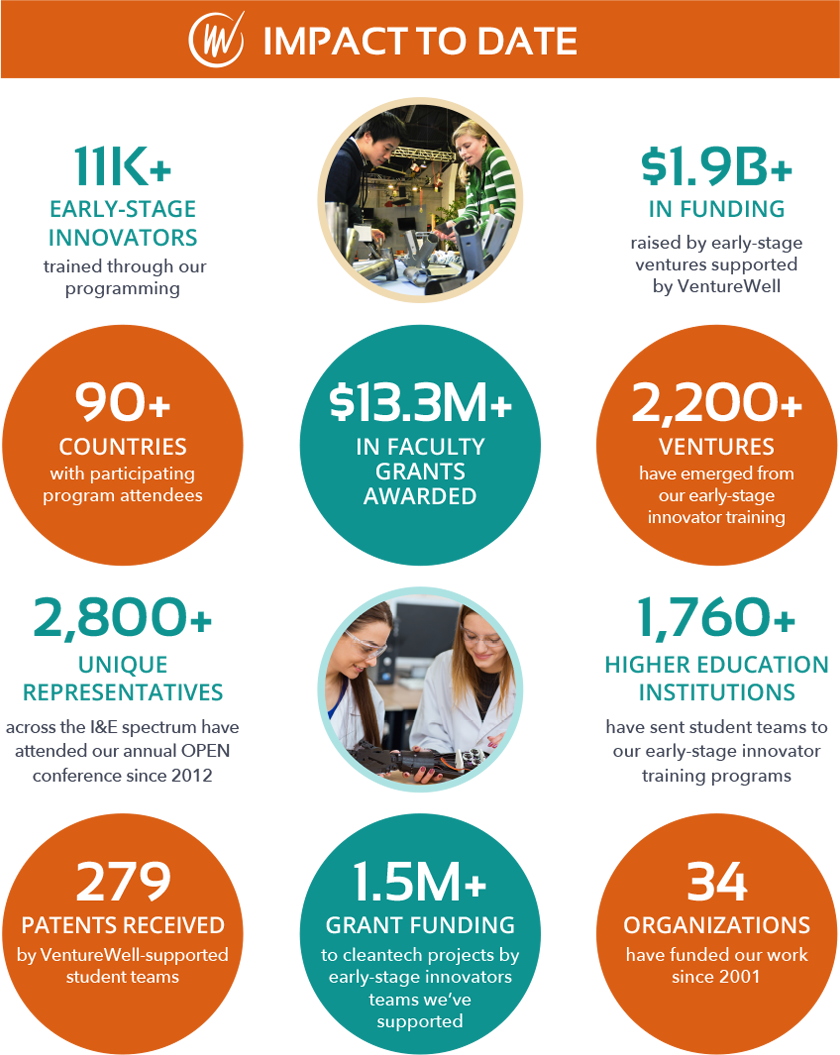
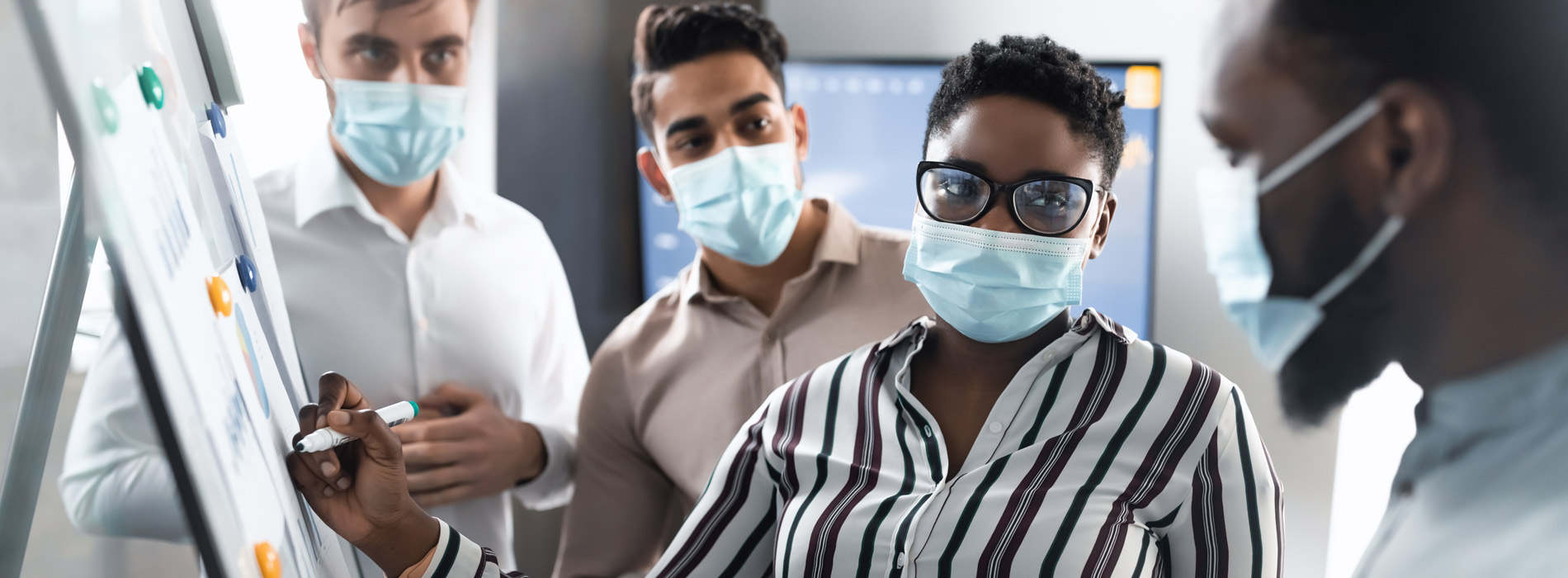
what we do
We support the progress of inventor-entrepreneurs and strengthen the ecosystem of entrepreneurship educators, mentors, and funding partners to ensure that promising discoveries have the best chance of becoming a reality.
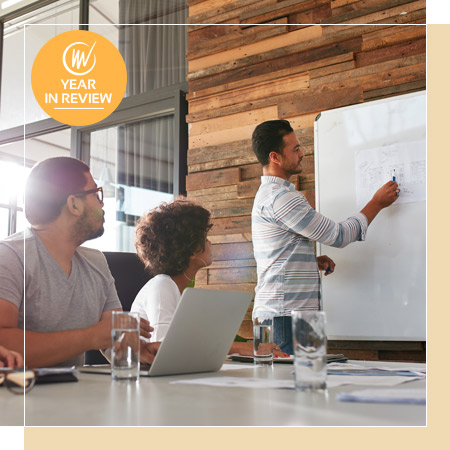
The challenges of 2021 were extraordinary, but the impressive response by the world’s innovators validated the central premise of our work: helping inventive people unleash the power of their great ideas to solve the world’s most pressing problems. We answered the year’s obstacles with innovations of our own, creating new forms of online programming and convenings, as well as creatively expanding our capacities to better engage the inventors, engineers, scientists, and entrepreneurs of tomorrow.
Consider the achievements of the National Institutes of Health’s Rapid Acceleration of Diagnostics program (RADx), administered with support from VentureWell. The RADx program identified the most promising early-stage technologies for COVID-19 testing, and assembled a robust ecosystem of resources and support to help shepherd ideas rapidly to market. Today, more than 30 companies have progressed through the development pipeline to produce approximately 300 million COVID-19 tests and supplies, accounting for half of the current US testing capacity.
While RADx was perhaps the highest profile initiative last year, we continued to make strides in our other areas of focus toward the overarching goal of strengthening the infrastructure of innovation. Of particular note were the enhancements we made this year to our E-Team Grant program for early-stage innovators. We drew on insights gained through virtual program delivery and our advancing equity work to enhance our curriculum, and forged new partnerships to broaden our reach. We have engaged faculty to learn more about the resources they need to grow their on-campus innovation and entrepreneurship ecosystems to better support innovators from underrepresented groups. We amplified our emphasis on diversity, equity, and inclusion in our Course and Program grants to faculty and staff at higher education institutions, helping catalyze shifts in institutional cultures. Our longstanding commitment to sustainability continued to gain momentum through the expansion of the Engineering for One Planet initiative.
Beyond our direct work with educators, innovators, and supporters, we also expanded our presence and expertise as an infrastructure and networking resource, developing and implementing a range of programs for government, industry, and academia. As in our work with the RADx program, our partners turned to us for a suite of services, as well as for resource coordination and technical expertise.
Our impact also continues to expand internationally. Our partnership with the Biotechnology Industry Research Assistance Council (BIRAC), with support from the Bill & Melinda Gates Foundation and the Wellcome Trust, allowed us to offer early-stage training to biomedical innovators in India.
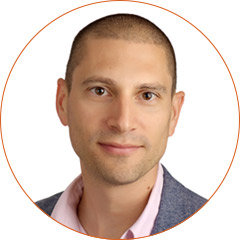
“Solving the world’s biggest challenges is not a feat that any one entity can accomplish alone. VentureWell works alongside the world’s leading organizations and agencies to offer the critical infrastructure, coordination, and technical expertise required to accelerate the development of solutions in science and technology.”
–Mark Marino, VentureWell vice president, growth strategy & development
2020-21 IMPACT NUMBERS
-
75+
consultants were engaged for the RADx initiative
-
43,000+
hours spent by RADx consultants working on COVID-19 diagnostics
-
240+
active reviewers for our programmatic proposal process
our impact
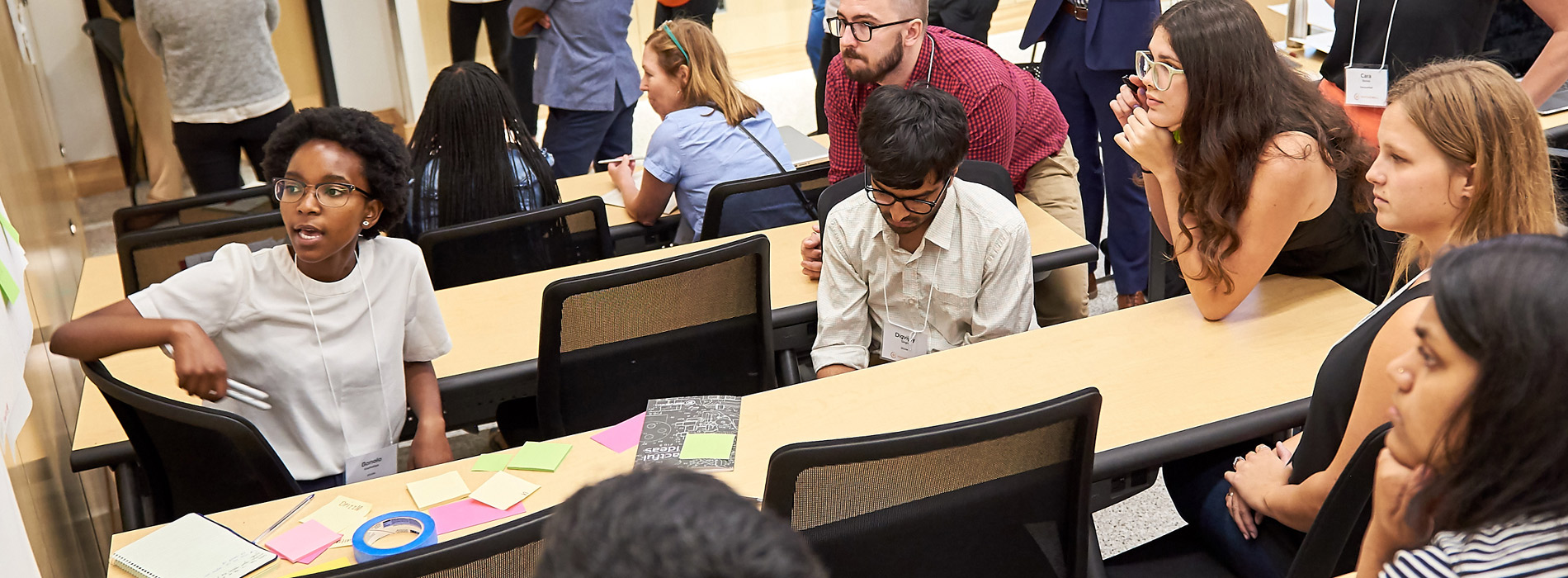
we support innovators
Having identified both the trajectory and the common missteps of early-stage ventures, we provide innovators with targeted assistance—precisely when they need it most.
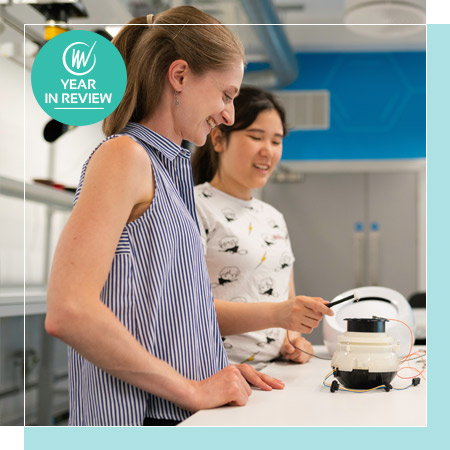
Our founding goal was to help prepare young innovators for their entrepreneurship journey—and early-stage venture-development training remains a core focus of our work. This year, we adjusted our program structure in order to create a more inclusive environment where innovators from all backgrounds increase their confidence in pursuing entrepreneurship.
Advancing equity continues to guide our efforts to engage the next generation of early-stage innovators. We created a number of initiatives designed to increase access to our programs for entrepreneurs from underrepresented groups. Building on our previous program enhancement of the Qualification Phase—which allows E-Team program hopefuls to submit a pre-application for feedback—we updated our application guidelines and modified the reviewer rubric for program acceptance.
Our training for early-stage innovators continues to be in-demand globally. Through our ongoing partnership with the US Department of State, we brought remote investor training, business incubation, coaching, and classes to entrepreneurs in Ukraine and Bhutan through the Global Innovation through Science and Technology (GIST) program. Another pandemic-year success story was our MedTech Challenge Lab-to-Market Training Program, which brought early-stage curriculum to promising biomedical startups in India. One participant, VaccineOnWheels, was able to pivot its business model and is now providing mobile COVID-19 vaccination services to underserved communities in Pune and Mumbai.
Our years of training and mentoring innovators have provided us with extraordinary depth of understanding into the challenges faced by new entrepreneurs, an evolving body of knowledge that we now provide to others working to support innovation and entrepreneurship. Our Venture Development Framework, a tool developed in 2019 that delineates the key stages of a startup, was updated this year to include three new commercialization pathways. A living document, the framework was designed to be adaptable to guide the next generation of entrepreneurs as they pursue diverse commercialization pathways.
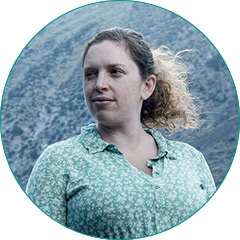
“As an experienced innovator, I know how hard it is to develop a novel solution to complex problems, but design is only 10% of the solution. It is critical for early-stage innovators to have access to mentorship, training, funding, and networks that enable them to continue to solve the big problems. VentureWell understands the process. It’s not always straightforward. We are equipped to provide the right tools and resources to help science and technology innovators progress from idea to impact.”
–Tricia Compas-Markman, VentureWell senior program officer
2020-21 IMPACT NUMBERS
-
2,600+
early-stage innovators trained
-
$21M+
in COVID-19-related grant funding raised by teams
-
$763M+
in follow-on funding raised by early-stage innovator teams
our impact
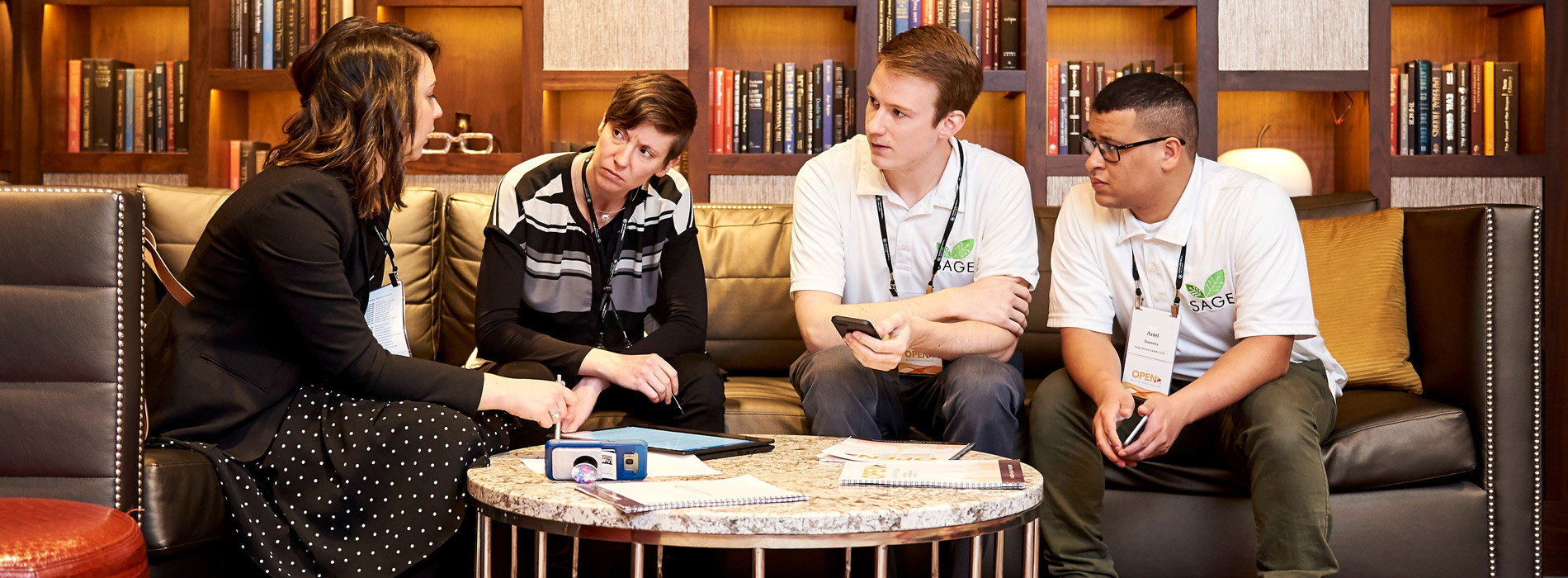
we build ecosystems
We help build entrepreneurial ecosystems of supportive, diverse networks of believers, mentors, and peers on university campuses and in regional hubs of innovation around the country and the world.
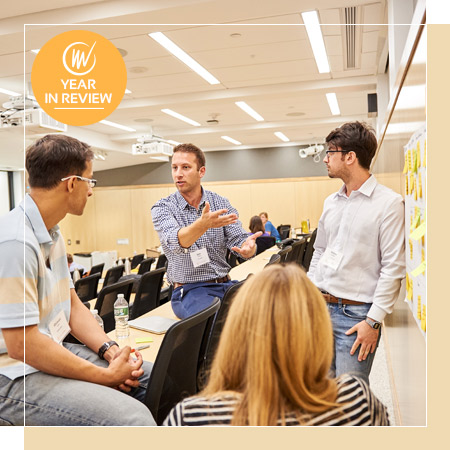
The support of a robust network offering mentoring, resources, and support—an entrepreneurial ecosystem—can have a decisive influence on the success of a new venture. VentureWell continues to foster this vital entrepreneurial infrastructure on university campuses and in emerging regional hubs of innovation, promoting institutional collaboration and opening pipelines of mentorship and investment.
At the university level, our Course and Program grants offer vital support for initiatives that increase student engagement in the entrepreneurial process, and help build new ecosystems where resources have been lacking. We awarded 26 grants totalling nearly $685,000 across two grant cycles, funding a diverse cohort of researchers and educators as well as more than a dozen proposals focused on sustainable innovations and technology.
We hosted a week-long training workshop for faculty looking to integrate key principles of environmental sustainability into engineering education, based on the Engineering for One Planet (EOP) Framework. Nearly 40 faculty took part in Infusing Sustainability into the Curriculum, and continue to collaborate in follow-up communities of practice meetings, facilitated monthly by VentureWell.
More broadly, VentureWell’s OPEN conference—our annual meeting of innovation and entrepreneurship educators, practitioners, funders, and students—took on new importance and impact in this pandemic year. The online event was itself a demonstration of the advantages provided by ecosystems: the session topics were chosen by the VentureWell community through a crowdsourcing process. The resulting 40 sessions—featuring over 200 speakers, more than half of whom identified as female or as members of an underrepresented group—took on topics like broadening the participation of underrepresented students in science and technology entrepreneurship, and promoting environmental and socially-responsible innovation.
But nowhere was VentureWell’s ecosystem-building expertise deployed with more impact than in the NIH’s landmark $1.5 billion RADx initiative. Serving as the program’s administrative command center, VentureWell helped bring together some 900 individuals in government, academia, and the private sector to advise and support roughly 150 companies. VentureWell’s involvement with RADx will continue through 2021, supporting ventures that are pursuing clinical trials.
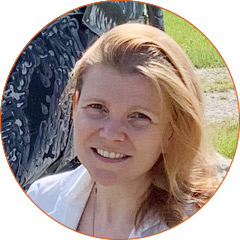
“The SKC Life Sciences Department wants to include diversity, equity, and inclusivity as integral parts of the future of entrepreneurship. The VentureWell faculty grant will be crucial for the development of entrepreneurial education framed in Tribal context. That framework can be adopted by STEM programs in other Tribal colleges and communities.”
–Wendy Westbroek, professor of Life Sciences at Salish Kootenai College, the Tribal college on the Flathead reservation in Montana
2020-21 IMPACT NUMBERS
-
$747k+
in course and program grants awarded
-
250+
participants have completed more than one Venturewell program
-
437
people attended OPEN 2021
our impact
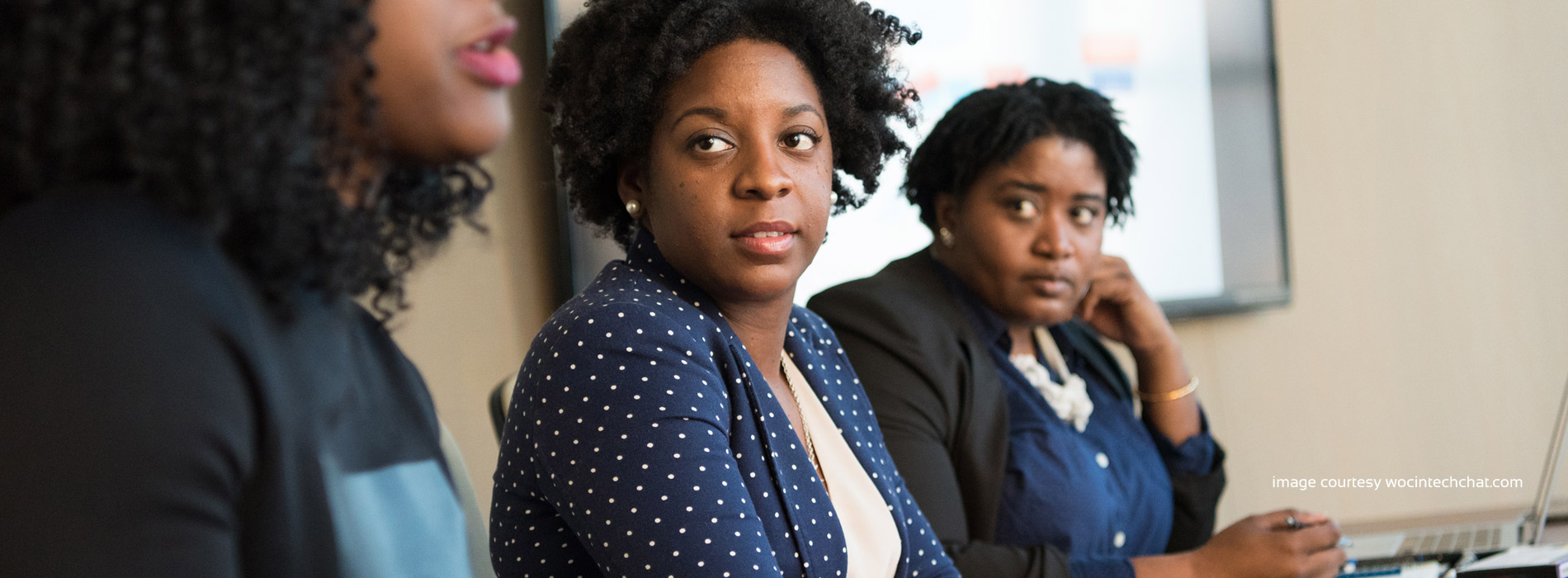
we foster equity
We strive to expand the participation of historically underrepresented, underestimated, and under-resourced faculty and students in science and technology innovation and entrepreneurship.
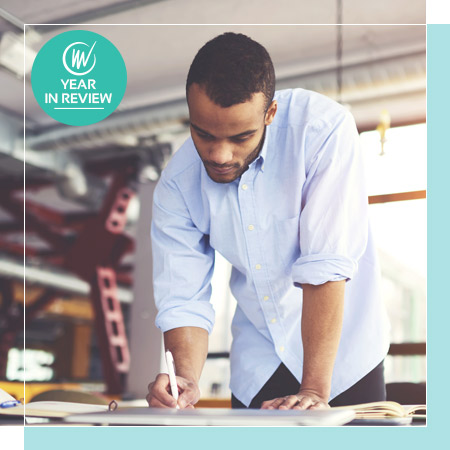
Advancing diversity, equity, and inclusion is a core focus for VentureWell, resulting this year in promising new partnerships, as well as critical adjustments to our programs and our internal organizational culture and practices. While we are seeing initial progress as a result of these efforts, we have also gained a deeper understanding of the many barriers faced by innovators from historically marginalized groups, and recognize that our work has only just begun.
To increase participation by underrepresented innovators, we have been deliberate in connecting with Minority Serving Institutions (MSIs) including Historically Black Colleges and Universities (HBCUs). Our shared mission is to identify, develop, test, and scale promising science and technology innovations to benefit the HBCU community.
This year we built on the momentum of our comprehensive 2020 report Advancing Equity: Dynamic Strategies for Authentic Engagement in Innovation and Entrepreneurship, presenting the findings virtually at annual conferences for the National Association for Community College Entrepreneurship (NACCE) and the US Association for Small Business and Entrepreneurship (USASBE), and to higher education partners in our network. To help move the report’s lessons from the page into the real world, we hosted a series of online community conversations featuring equity and inclusion advocates who led deep-dive discussions into the report’s action areas.
Reflecting our own organizational journey, we released Charting a Path Forward, a review of our lessons learned, ongoing struggles, and junctures we see opportunities to advance diversity, equity, and inclusion in our programs, organizational practices and culture, and field-building work.
Internally, we continue to encourage our own process of self-reflection and discussion, most notably in bi-monthly staff-led meetings that explore various topics related to race and racism, empathy, and the role of the media and popular culture in shaping public opinion. VentureWell staff have found that these conversations enable them to connect both personally and professionally to equity and inclusion work. A key insight this year was recognizing that within the equity and inclusion field, our organization’s role is both convener and participant. We have therefore been guided by a “gather, listen, synthesize, and share approach to our field-building efforts.
Finally, we’ve leveraged our own institutional expertise in customer discovery to help us determine the types of institutions that are most likely to engage with VentureWell, thus allowing us to better target our outreach to students from underrepresented groups. Altogether, this holistic focus on DEI has enabled program growth and innovation, which in turn will continue to have positive impacts across our organization, our portfolio, and the field.
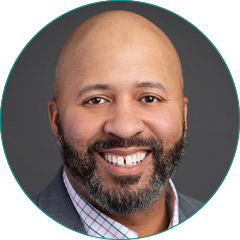
“I have continued to refer back to VentureWell’s Advancing Equity report to support my work. It is a valuable tool that provides insight into the ways we can build inclusive innovation and entrepreneurial ecosystems.”
–Jeff Smith, director of Innovation and Equity at the National Association for Community College Entrepreneurship (NACCE)
2020-21 IMPACT NUMBERS
-
400+
downloads of our Advancing Equity report
-
50+
members of our network engaged in our Community Conversations for Advancing Equity online events
-
3000+
visitors engaged with our Resources for Advancing Equity page
our impact

we catalyze climate change solutions
We’re expanding our commitment to provide resources and convenings to help educators integrate environmentally responsible principles into science and engineering curriculum.
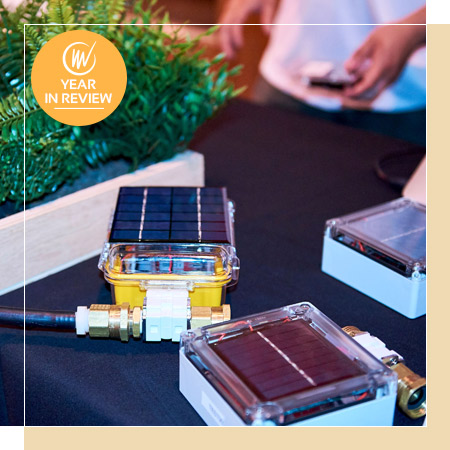
The disruptions of climate change—along with the broader existential threats posed by environmental degradation—present unprecedented tests for our civilization’s engineers and inventors, as well as for the institutions that train them. VentureWell has long advocated for integrating sustainability into innovation and entrepreneurship, and in this time of climate emergency, our efforts to transform engineering education have gained new urgency and support.
At the center of our efforts is the Engineering for One Planet (EOP) initiative. With its growing community of stakeholders from academia, professional associations, nonprofits, government and industry, EOP is mobilizing to create systems change in engineering education so that all science and technology innovators have the skills, knowledge, and understanding to protect our planet and the life it sustains.
Last summer, The Lemelson Foundation awarded two-year seed grants to five universities to integrate the community-developed EOP Framework into their courses, programs, and departments. This spring, the grantees reported making measurable progress in curricular changes and faculty engagement, with some 26 Framework-based courses being offered, taught by 39 faculty and reaching 1,872 students. Perhaps equally consequential, the grantees are using regular communities of practice meetings to share best practices, address common challenges—such as strategies for drawing in higher-level institutional leadership—and exchange promising curricular approaches.
And we continue to focus on environmental sustainability in our own programming. In response to community input, we made environmental and social sustainability a topic of critical interest at OPEN, beginning with the keynote by Erin Meezan, chief sustainability officer of Interface, a flooring company whose innovative carpeting is helping the company move toward a goal of being carbon negative by 2040. Session topics covered biomimicry, designing with the sun, how higher education can bring about systems change to support innovation, and other issues of environmental concern. We awarded our 2021 Sustainable Practice Impact Award to a thought-leader in sustainable engineering education, Delft University of Technology professor Jeremy Faludi.
To support sustainable thinking among early-stage innovators, this spring we selected eight cleantech startups for the 2021 ASPIRE investment-readiness program, all of which were developing environmentally beneficial innovations, including solutions in sustainable materials, agriculture, energy efficiency, wastewater management, wind energy, and emissions monitoring. We also increased our annual OPENminds Green Prize from $250 to $2,000 this year, presenting it to The New Norm, a team from Johns Hopkins University that is working to turn waste plastics into wearable fabric.
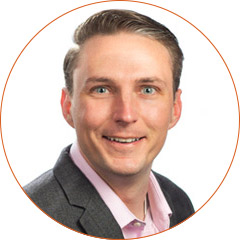
“We find that many faculty members are passionate about sustainability, but they haven’t found a practical approach to tie it into their work. We help faculty effectively integrate sustainability into their classrooms and institutions through grants and training. Our training and networking opportunities amplify the impact of our grantmaking, encouraging faculty to create courses and programs for longevity and to build the environmental sustainability ecosystems at their institutions.”
–Jeff Plumblee, VentureWell senior program officer
2020-21 IMPACT NUMBERS
-
$116M+
in cleantech-related funding raised by our early-stage innovator teams
-
$158K+
awarded by VentureWell to cleantech-focused early-stage innovator teams and faculty initiatives
-
90+
participants in environmentally-focused trainings and workshops
our impact

we collaborate for impact
VentureWell has a strong ethos of developing strong partnerships with organizations who share our mission and vision. Partners implementing complex initiatives are drawn to us for our capabilities in helping them achieve their goals.
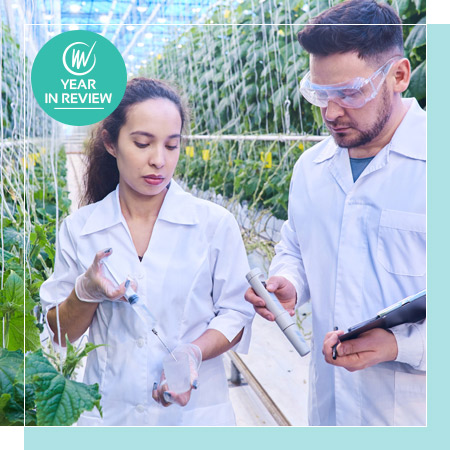
Corporations, foundations, government agencies, and academic institutions have long turned to VentureWell for our programming expertise, extensive professional network, and adaptable suite of administrative services. These partnerships have expanded and deepened over the years, with many—such as cornerstone funding and programmatic support from the Lemelson Foundation for our early-stage innovator and faculty initiatives—dating back to VentureWell’s inception.
Corporations, such as Qualcomm, turn to us to help amplify issues of importance to their mission, such as improving diversity in the patent process. Federal agencies, in turn, see us as a trusted collaborator with a proven record of achievement. In April, we marked the 100th National Science Foundation I-Corps cohort, a notable milestone for this ten-year partnership between the National Science Foundation and VentureWell. Leveraging the success of the I-Corp model, we began partnering with Ryerson University in Toronto, Dalhousie University in Nova Scotia, and Memorial University in St. John to bring a similar lab-to-market training to Canada.
Our collaboration with the NSF on its Industry-University Cooperative Research Center (IUCRC) program is also expanding. In addition to serving as an organizational hub for the IUCRC community, we are leading a redesign of the data collection systems process and creating a new website.
Our work this year with the National Institutes of Health, serving as the administrative organization for the $1.5 billion Rapid Acceleration of Diagnostics program (RADx), has perhaps most strongly demonstrated the strategic advantages of partnering with VentureWell. The program’s success is not just a validation of our methods and expertise, but also a larger statement about the vital role that collaboration and infrastructure play in innovation. By helping join together academia, industry, and government to achieve an ambitious common goal, VentureWell helped redefine the possible and bring ideas to impact.
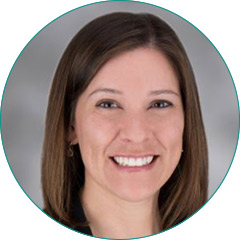
“VentureWell’s work to cultivate the next generation of inventors and entrepreneurs contributes to greater economic resilience and better lives here in the US and around the world. We’re excited to build on our 25+ year partnership with new initiatives focused on building more equitable and inclusive pathways for student entrepreneurs, and re-imagining engineering education to ensure environmental sustainability becomes a core tenet of the profession.”
–Cindy Cooper, program officer, The Lemelson Foundation
